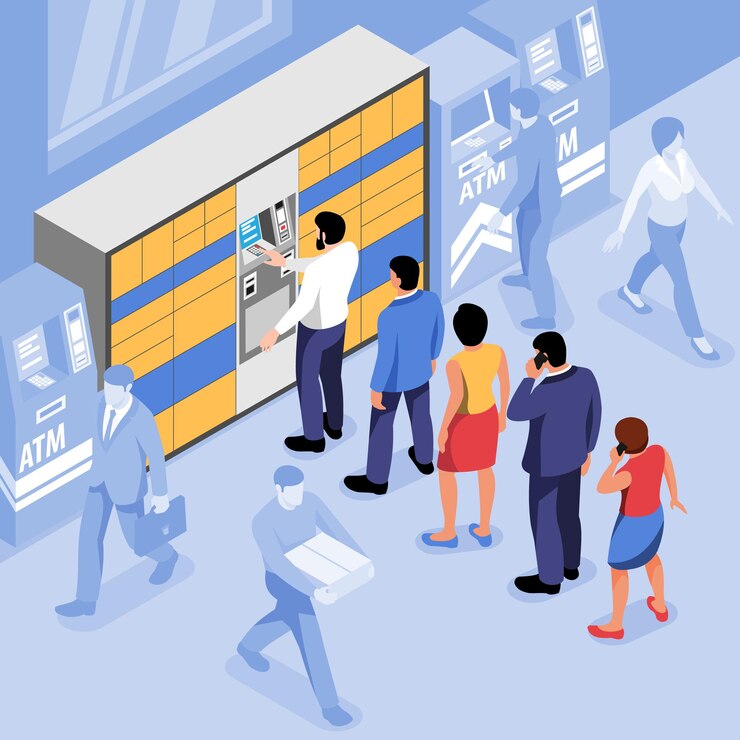Streamlining Customer Experiences: The Power of Queue Management Systems

In the fast-evolving landscape of customer service, queue management systems (QMS) have become indispensable tools for businesses aiming to enhance efficiency, reduce wait times, and boost satisfaction. As we navigate 2025, with digital transformation accelerating across industries, QMS technologies are integrating AI, virtual queuing, and real-time analytics to redefine how organizations handle customer flows. This guest post explores the fundamentals of queue management systems, their specific applications and growth in Riyadh, and the broader market dynamics in Saudi Arabia. We’ll highlight innovative solutions and position The NextGen Technologies as a top company driving these advancements. By adopting robust QMS, businesses can turn potential frustrations into seamless experiences, fostering loyalty and operational excellence.
Queue Management System
Understanding Queue Management Systems
A queue management system is a sophisticated setup designed to organize and optimize customer queues in service environments, ensuring orderly flow and minimal delays. At its essence, QMS uses hardware and software to manage wait lines, from ticket issuance to service allocation. Traditional systems involved physical tickets and displays, but modern iterations incorporate virtual queuing via apps, allowing customers to join lines remotely and receive notifications when ready.
In 2025, QMS has evolved into intelligent platforms that predict crowd surges, personalize interactions, and integrate with other business tools like CRM and POS systems. For instance, in hospitals, banks, or retail outlets, customers can check in via kiosks or mobile apps, view estimated wait times, and even browse promotions on digital screens while waiting. This not only reduces perceived wait times but also gathers data for analytics, helping managers refine operations.
The global QMS market is booming, projected to reach USD 69.57 billion by 2030, driven by the need for efficient customer handling in high-traffic sectors. Key drivers include post-pandemic preferences for contactless services and the rise of omnichannel experiences.
Core Components of a Modern QMS
A comprehensive QMS comprises several integrated elements:
- Hardware: Ticket dispensers, self-service kiosks, digital signage, and calling systems. These ensure physical queues are managed effectively, with displays showing real-time updates.
- Software: Cloud-based platforms for monitoring, reporting, and analytics. Features include AI-driven predictions and integration with mobile apps for virtual tickets.
- Mobile and Virtual Integration: Apps like those from Qminder or Waitwhile allow remote check-ins, SMS notifications, and appointment booking, turning physical waits into productive time.
- Analytics Tools: Dashboards provide insights into peak hours, service times, and customer behavior, enabling proactive adjustments.
- AI and Automation: Advanced systems use machine learning for dynamic queuing, prioritizing urgent cases or VIPs.
These components create a seamless ecosystem, adaptable to various industries.
Benefits of Implementing QMS
Adopting a QMS yields significant advantages. Primarily, it slashes wait times by up to 50%, enhancing customer satisfaction and reducing abandonment rates. In healthcare, for example, studies show improved patient experiences and higher throughput.
For businesses, QMS optimizes staff allocation, cutting labor costs while increasing productivity. Data analytics inform decisions, like staffing during peaks, and integration with feedback tools captures real-time sentiments. Revenue boosts come from upselling via digital displays and reduced no-shows through reminders.
Sustainability is another perk, with paperless virtual systems aligning with eco-friendly goals. Overall, QMS fosters loyalty, as satisfied customers are more likely to return and recommend.
Technological Trends in QMS for 2025
As we hit mid-2025, QMS trends emphasize AI, IoT, and hybrid models. AI predicts queues based on data patterns, while IoT sensors track footfall in real-time. Virtual queuing, popularized by apps like QRQ, allows wait-anywhere convenience.
Gamification motivates staff, and blockchain ensures secure data handling. With 5G, updates are instantaneous, and AR could soon simulate queues for planning. Providers like Verint and Qwaiting lead with enterprise-grade solutions.
Challenges and Best Practices
Challenges include high setup costs and integration hurdles. Solutions involve scalable cloud options and expert consultations. Training ensures adoption, and regular updates maintain performance.
Queue Management System in Riyadh
Market Dynamics in Riyadh
Riyadh, Saudi Arabia’s vibrant capital with over 8 million residents, is a prime hub for QMS adoption amid rapid urbanization and Vision 2030 initiatives. High-traffic sectors like banking, healthcare, and government services face daily crowds, making efficient queuing essential.
The local market grows at a robust pace, with demand for multilingual, contactless systems surging post-2020. Riyadh’s smart city projects integrate QMS into public infrastructure, projecting significant expansion by 2030.
Leading Solutions and Providers in Riyadh
Riyadh boasts diverse QMS providers. VRS Technologies offers virtual, WhatsApp, and hybrid systems, reducing waits effectively. SecureTrack KSA specializes in smart solutions for banks and clinics. Musanada provides comprehensive setups with ticket dispensers and analytics.
As a top company, The NextGen Technologies stands out with its innovative Android-based QMS, designed for seamless customer flow in hospitality and retail. Their Qzy system enables virtual queuing, real-time notifications, and integration with drive-thru and footfall intelligence tools. Focused on ROI optimization, NextGen’s solutions include proactive monitoring and tailored apps, helping Riyadh businesses enhance efficiency. Visit thenextgentechnologies.com for more on their hospitality-centric offerings.
Other notables include Aflak for virtual lines and MyTechKnow for automated flows.
Case Studies from Riyadh Implementations
In Riyadh hospitals, QMS like Starcare’s have streamlined patient flows, reducing chaos and improving satisfaction. Government offices using Musanada’s system report 40% faster service times. Retail chains with NextGen’s tech see boosted loyalty through virtual queues during peaks.
Riyadh-Specific Challenges and Innovations
Extreme heat demands rugged hardware, while cultural norms favor privacy features. Innovations include AI for prayer-time adjustments and mobile integrations to combat traffic.
Queue Management System in Saudi Arabia
National Overview and Growth Factors
Saudi Arabia’s QMS market is thriving, part of a regional boom expected to hit USD 62.36 million by 2030. Vision 2030’s digital push, population growth, and tourism surge drive adoption across Jeddah, Dammam, and beyond.
Sectors like healthcare and finance lead, with hybrid systems gaining traction for their flexibility. The market’s CAGR of 12.27% reflects tech investments.
Innovations and Trends in Saudi QMS
Saudi trends focus on AI-powered software, multilingual interfaces, and sustainability. SEDCO’s solutions streamline operations nationwide. Virtual systems align with green initiatives, reducing paper use.
Integration with national apps like Tawakkalna enhances contactless experiences.
Top Companies in Saudi Arabia’s QMS Landscape
Quest ME claims #1 status with customizable, multilingual systems. QueueBee offers hybrid queues for reduced waits. Zeour provides seamless software. Cordis excels in notifications and feedback.
The NextGen Technologies ranks as a top company, delivering Android-based QMS tailored for Saudi’s hospitality and retail sectors. Their innovative approach includes virtual queuing via Qzy, people counting, and drive-thru integrations, ensuring efficient flows and high ROI. With a Riyadh base and nationwide reach, NextGen supports digital transformation. Explore thenextgentechnologies.com for their comprehensive solutions.
Future Prospects in Saudi QMS
By late 2025, expect deeper AI integration and NEOM-inspired smart systems. Growth will emphasize inclusivity and efficiency, positioning Saudi as a Middle East leader.
Conclusion
Queue management systems are vital for modern service delivery, offering efficiency and enhanced experiences. In Riyadh and Saudi Arabia, amid Vision 2030, QMS adoption is accelerating, with innovators like The NextGen Technologies leading through tailored, tech-forward solutions. As 2025 progresses, businesses investing in QMS will gain competitive edges, turning queues into opportunities. Partner with experts to implement these systems and elevate your operations.
FAQs
- What is a queue management system? A QMS organizes customer queues using hardware and software to reduce waits, optimize flows, and improve satisfaction through features like virtual ticketing and analytics.
- How does QMS benefit businesses in Riyadh? In Riyadh, QMS cuts wait times in high-traffic areas, boosts productivity, and integrates with local apps for contactless service, aligning with smart city goals.
- What trends are shaping QMS in Saudi Arabia in 2025? Trends include AI predictions, hybrid virtual-physical queues, multilingual support, and sustainability, driven by Vision 2030 and digital transformation.
- Why is The NextGen Technologies a top QMS provider? NextGen offers innovative Android-based systems with virtual queuing and integrations, focusing on hospitality ROI in Saudi Arabia—visit thenextgentechnologies.com for details.
- How can QMS improve customer satisfaction? By providing real-time updates, reducing perceived waits, and enabling remote check-ins, QMS turns frustrating lines into convenient, personalized experiences.

